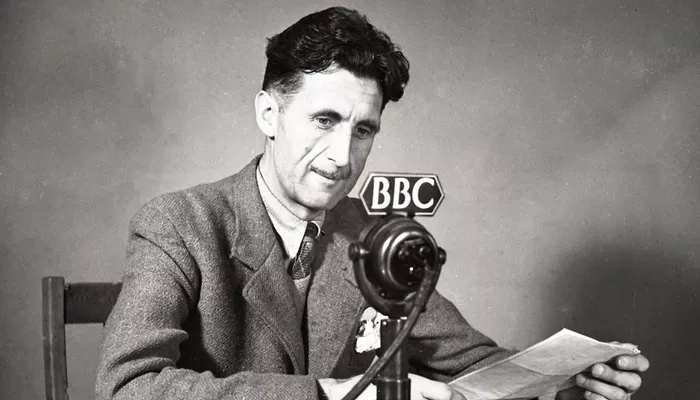George Orwell, born Eric Arthur Blair on June 25, 1903, in Motihari, Bengal, India, is renowned for his insightful writings that critique totalitarianism and champion democratic socialism. His most celebrated works, “Animal Farm” and “Nineteen Eighty-Four,” offer profound commentary on political systems and human nature. Despite his significant influence on global literature, Orwell was not an American author; he was British. This article delves into his life, works, and the reasons behind his lasting impact on literature.
Early Life and Education
Orwell’s early life was marked by his birth in British-occupied India to a British civil servant father and a mother of French descent. At the age of one, he moved to England, where he later attended prestigious schools like Eton. Choosing not to pursue university education, Orwell joined the Indian Imperial Police in Burma, an experience that deeply influenced his worldview and later writings.
Transition to Writing
Dissatisfied with his role in the colonial police, Orwell resigned in 1927 to become a writer. He adopted the pen name “George Orwell” shortly before publishing his first book, “Down and Out in Paris and London,” in 1933, which detailed his experiences living in poverty. This work set the tone for his future writings, characterized by social criticism and a focus on the plight of the underprivileged.
Major Works
“Animal Farm” (1945)
“Animal Farm” is an allegorical novella that satirizes the events leading up to the Russian Revolution and the early years of the Soviet Union. Through the story of farm animals who overthrow their human farmer, Orwell explores themes of power, corruption, and betrayal. The novel’s famous line, “All animals are equal, but some animals are more equal than others,” encapsulates its critique of political hypocrisy.
“Nineteen Eighty-Four” (1949)
Published in 1949, “Nineteen Eighty-Four” presents a dystopian vision of a society under constant surveillance, where truth is manipulated, and individuality is suppressed. The novel introduced concepts like “Big Brother,” “Newspeak,” and “doublethink,” which have entered common parlance to describe invasive governance and the distortion of facts.
Political Views and Legacy
Orwell’s political views evolved over his lifetime. Initially identifying as an anarchist, he later embraced democratic socialism, influenced by his experiences during the Spanish Civil War and his disillusionment with Soviet communism. His writings reflect a deep concern for social justice, individual freedoms, and the dangers of unchecked authority.
His legacy endures, with his works remaining relevant in discussions about government surveillance, freedom of expression, and the manipulation of information. In 2025, the Royal Mint honored Orwell by featuring his image on a new £2 coin, commemorating the 75th anniversary of his death and acknowledging his lasting impact on society and culture.
Conclusion
While George Orwell’s influence permeates American culture, literature, and political discourse, he was unequivocally a British author. His works transcend national boundaries, offering universal insights into the complexities of human nature and societal structures. Orwell’s commitment to clarity, truth, and social justice continues to resonate, making his writings essential reading for understanding the dynamics of power and the importance of safeguarding individual freedoms.

